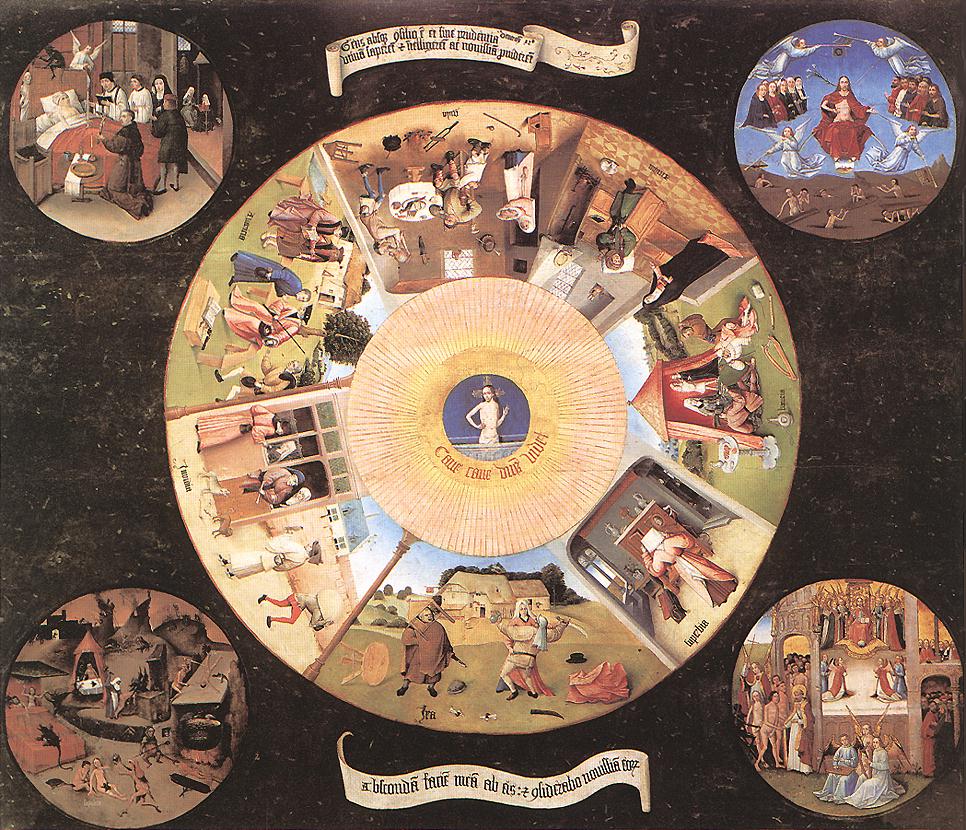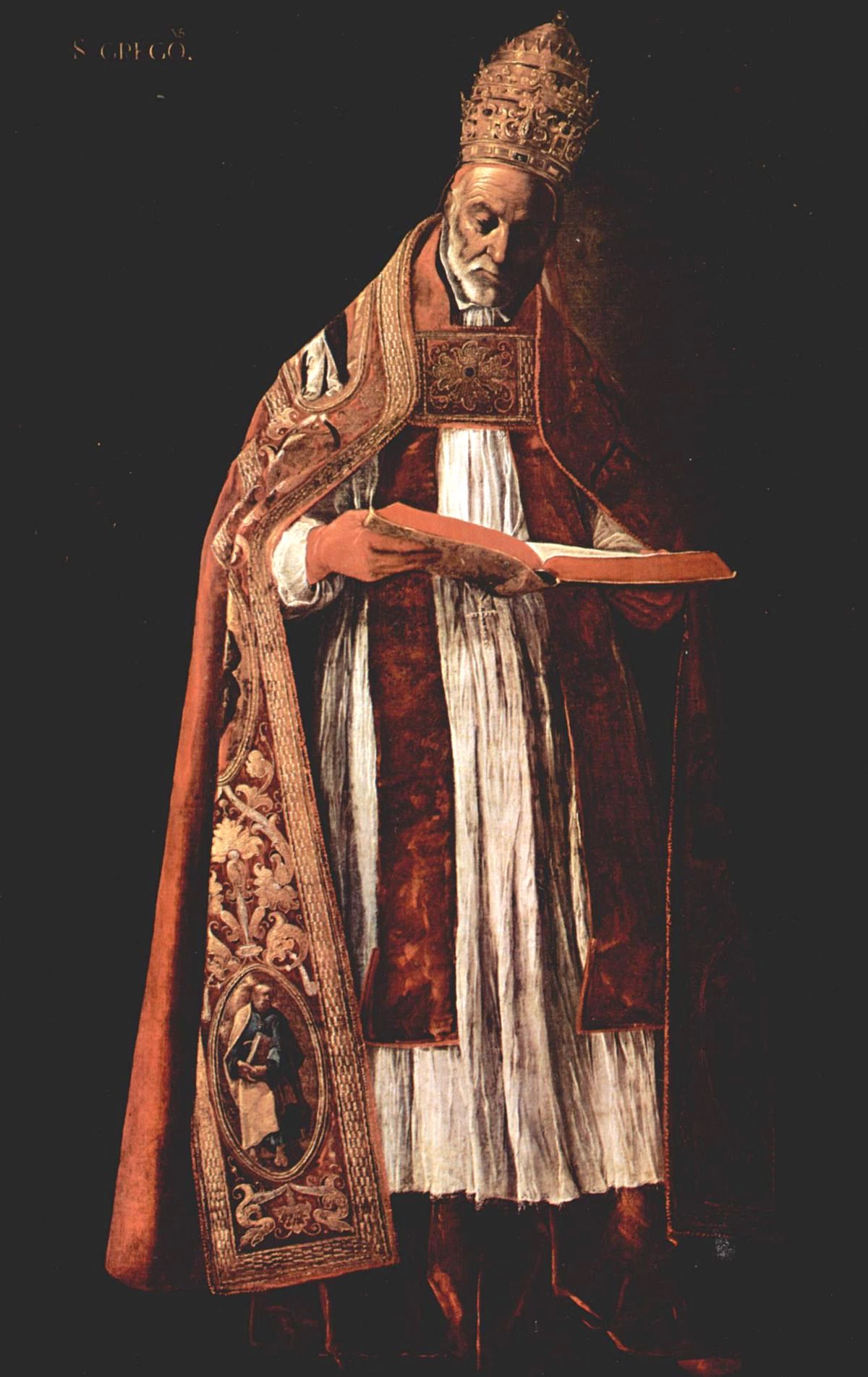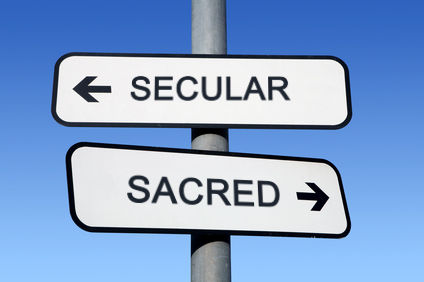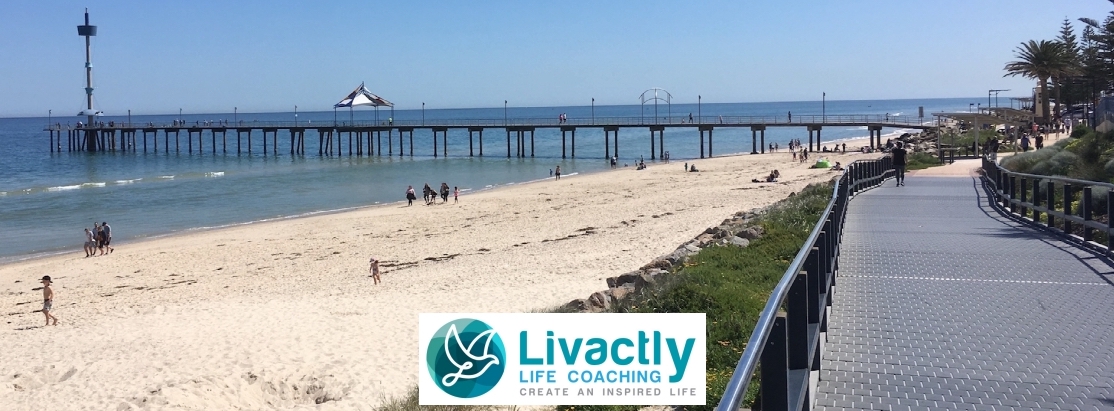
Hieronymus Bosch: 'The 7 Deadly Sins And The Four Last Things' (1484)
This article is the first in a series about the 7 Deadly Sins and 7 Heavenly Virtues. The series will appear in parts over a period of several weeks.
In this article we will introduce the 7 Deadly Sins. We will also look at a method for translating them into modern ideas of 'bad things'.
I am sure that everyone knows that in other cultures there are similar concepts of good and evil that echo what we'll be discussing here, but the idea of the 7 Deadly Sins is particularly Christian.
The phrase 'Seven Deadly Sins' is largely used in Christianity, but strangely it is not found in the Christian Bible. Instead it is found in the work of a 4th century monk, Evagrius Ponticus (345-399 AD). Later the Christian Pope Gregory I adopted it in AD 590, and St Thomas Aquinas (1225-1224 AD) refined it later.

Pope Gregory I (540-604 AD)
In this article we will expand the concepts beyond Christianity into a kind of 'Universal Code' for living a good life that works independent of whichever culture you identify with.
Christian theological definitions of sin
A simplified Christian theological definition of 'sin' is 'contradictory to the law or will of God'. In a secular society, the meaning and importance of 'sin' is much diminished because of the diminished importance of 'God'.
Indeed, in a truly atheistic society the concept of 'Sin' (as defined in Christian theology, above) loses its meaning altogether according to this definition. After all, an atheist contends that as there is no God, there can be no law or will for humans to contradict.
This is largely why ardent theists regard atheists with disdain and consider them evil.
As mentioned above, these articles will not be discussing theological arguments regarding sins or virtues, but neither are we championing atheism.
However we will attempt to suggest ways in which individuals and society can enjoy both points of view. I will not dictate to the reader what they should or should not do, think or not think.
Instead we'll look at them in terms of their 'ecology' In other words, this is what is their effect on the individual and on society in general. That way the reader can make up their own mind in these matters.

Non Religious Definitions of Sin
A non religious definition of sin could be something like 'Any action or thought that is detrimental or harmful to the individual or others'. In other words it is based on the principle Primum non nocere - 'Do No Harm.'
Also note that we are restricting 'sin' to the human sphere. This article is not about 'environmental crimes' or other such inventions, except where they affect individuals. For instance, if you had the ability to destroy a star, it would not necessarily affect individuals (unless it is our own sun!)
So when considering 'secular sins', let's ask the following questions:
- is the thought or feeling of [sin] detrimental to the individual?
- is the thought or feeling of [sin] detrimental to other individuals?
- is the action detrimental of [sin] to the individual?
- is the action detrimental of [sin] to other individuals?
It is patently obvious that actions are easier to measure than thoughts, as the only one who can know thoughts is the individual who thinks the thought. From this it may be obvious that we cannot judge people by their thoughts but only by their actions.
And that brings up another point: who are we to judge? Some people would regard being judgmental as also a sin.
Over the course of this series we will look at each sin in detail, and in the second part of the series discuss their counterparts, 'The 7 Heavenly Virtues.'
Next Article: Lust and Gluttony - 2 Obsessional Sins
